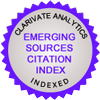Bayes Ağları ile Futbol Analitiği: FutBA Modeli
Mert Karabıyık, Barbaros YetEndüstri Mühendisliği Bölümü, Hacettepe Üniversitesi, Ankara, TürkiyeFutbol maçları yüksek belirsizliğe sahiptir ve sonuçlarının tahmin edilmesi zordur. Sadece veriye dayalı tahmin ve yapay öğrenme yöntemleri, futbol tahminlerinde kısıtlı performans elde edebilmektedir. Uzman bilgisine dayalı modeller başarıya sahip olmuştur, fakat bu modellerin başka yerlere uygulanması için yine uzman bilgisi ve analistler tarafından gözden geçirilmesi gerekmektedir. Bu çalışmada Türkiye futbol ligleri için geliştirilmiş özgün bir Bayes ağı modeli önerilmektedir. Önerilen model futbol müsabakası yapan takımların hücum ve savunma gücünü maça ilişkin birçok gözlem ile belirleyerek maç sonucunu tahmin etmeyi amaçlamaktadır. Modelin yapısı ve parametreleri uzman bilgisi ile geliştirilmiştir. Modelden tahmin üretirken geçmiş maç verisi ile maça ilişkin uzman bilgisi girdi olarak kullanılabilmektedir. Önerilen model Türkiye Süper Liginden gerçek maç verisi ile değerlendirilmiştir.
Anahtar Kelimeler: Futbol Analitiği, Bayes Ağları, Tahmin Modelleri
Football Analytics using Bayesian Networks: the FutBA Model
Mert Karabıyık, Barbaros YetDepartment of Industrial Engineering, Hacettepe University, Ankara, TurkeyThe results of football matches are difficult to predict due to their high uncertainty. Previous applications of data-driven machine learning approaches had limited performance in this prediction problem. Models that use expert knowledge had relatively higher performance but it is difficult to adapt these models to different cases as they need to be reviewed by experts and analysts based on specific requirements of the new application. This paper proposes a novel Bayesian network model to predict the results of football matches in Turkish football leagues. The Bayesian network model predicts the match results by estimating the attack and defense capability of the teams based on multiple observations about the football match. The structure and parameters of the model is defined based on expert knowledge. The model is able to use statistical data from previous matches and expert knowledge about these factors to generate predictions. The proposed model is evaluated by using data from the Turkish Super League.
Keywords: Football Analytics, Bayesian Networks, Predictive Models
Makale Dili: Türkçe





